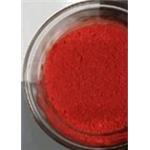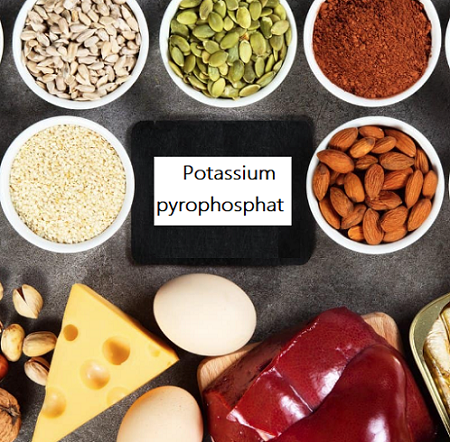The side effects and Precautions of Lycopene
Jun 13,2024
Introduction
Lycopene (C40H56) is a red compound found naturally in fruits and vegetables. It belongs to a group of chemicals known as carotenoids. It is related to beta-carotene and gives some vegetables and fruits (e.g., tomatoes) a red colour.
Chemically, it is made of a large polyene chain that contains 35–40 carbon atoms. It is a tetraterpene compound with eight isoprene units and 11 double linear bonds. Lycopene is a non-pro-vitamin A carotenoid. Lycopene is a non-provitamin A carotenoid and shows no vitamin A activity. The body absorbs Lycopene better in its processed form (cooked, etc.) than raw. People can also take Lycopene as well as a supplement[1].
What is the natural source of Lycopene?

Many natural products contain Lycopene. Red fruits and vegetables such as tomatoes, pink guavas, apricots, watermelons, and pink grapefruits are essential sources of Lycopene. Tomatoes are a significant contributor to Lycopene and are a considerable source of vitamins K, A, C, fiber, and carbohydrates, as well as some amounts of iron, potassium, phosphorus, and sulfur. In addition, it contains low sodium, fat, and calories. Various sources of Lycopene are shown above. Some dietary sources of Lycopene include processed tomato products like tomato paste, ketchup, sauce juices, and soups. Lycopene bioavailability is profoundly affected by dietary content. Since it is a lipid-soluble substance, consumption of dietary fat sources amplifies lycopene bioavailability. Studies are showing that lycopene bioavailability in heat-treated tomatoes is increased compared to fresh tomatoes. In addition, it has been observed that tomatoes grown in the field contain higher levels of Lycopene than tomatoes grown in the greenhouse[2].
What is this compound good for?
Lycopene is good for keeping the heart healthy and keeps many types of cancer, such as prostate, breast, lung, bladder, ovaries, colon, and pancreas, at bay. It is an antioxidant and anti-inflammatory. It protects the skin from sun damage. It is good for preventing the incidence of gum disease and free-radical damage. It prevents the development of cardiovascular diseases like atherosclerosis (hardening of the atrial wall).
While research is ongoing, Lycopene may also promote good oral health, bone health, and blood pressure.
What are the side effects and Precautions of Lycopene?
Lycopene usually is not toxic. It is commonly found in most of our diets. In rare cases, a Lycopene-high diet can lead to excess Lycopene in the blood and consequent skin discoloration known as lycopenodermia.
The side effects of Lycopene also include: Serious heart symptoms such as fast, irregular, or pounding heartbeats; fluttering in your chest; shortness of breath; and sudden dizziness, lightheartedness, or passing out; Severe headache, confusion, slurred speech, arm or leg weakness, trouble walking, loss of coordination, feeling unsteady, very stiff muscles, high fever, profuse sweating, or tremors; Serious eye symptoms include sudden vision loss, blurred vision, tunnel vision, eye pain or swelling, or seeing halos around lights.
When taken by mouth: Lycopene is commonly consumed in certain fruits and vegetables. When taken in supplements, doses of 15-45 mg daily have been safely used for up to 6 months. Pregnancy and breast-feeding: Lycopene is likely safe during pregnancy and breastfeeding when eaten in typical food amounts. There isn't enough reliable information to know if lycopene supplements are safe when pregnant or breastfeeding. Stay on the safe side and stick to food amounts.
Surgery: Lycopene might slow blood clotting. It might increase the risk of bleeding during and after surgery. Stop using lycopene supplements at least 2 weeks before a scheduled surgery.
References
[1] Muhammad Imran. “Lycopene as a Natural Antioxidant Used to Prevent Human Health Disorders.” Antioxidants (2020).
[2] Usman Mir Khan. “Lycopene: Food Sources, Biological Activities, and Human Health Benefits.” Oxidative Medicine and Cellular Longevity (2021): 2713511.
- Related articles
- Related Qustion
- Lycopene: A Potent Antioxidant Compound with Anti-inflammatory Properties Jun 17, 2024
Lycopene is a natural compound with potent antioxidants, cardioprotective, anti-inflammatory effects, guarding against oxidative stress and cardiovascular issues.
- Lycopene: food sources and activities Jul 11, 2023
Lycopene in tomatoes is an antioxidant that prevents fat oxidation, benefiting heart health and offering potential in food preservation.
- Uses of Lycopene Oct 24, 2019
Lycopene is a naturally occurring chemical that gives fruits and vegetables a red color. It is a powerful antioxidant that may help protect cells from damage.
p-Anisaldehyde is a colorless liquid with a strong aroma. It has sweet, floral and strong aniseed odor.....
Nov 13,2024Organic ChemistryIn the food industry, Potassium pyrophosphate is used as an emulsifier, quality modifier, chelating agent, and to help improve the taste of cakes and pastries.....
Jun 13,2024Food AdditivesLycopene
502-65-8You may like
- Lycopene
-

- $99.00/ kg
- 2024-11-16
- CAS:502-65-8
- Min. Order: 0.0010000000474974513kg
- Purity: 99%
- Supply Ability: 5000
- Lycopene
-

- $0.00 / 1Kg/Bag
- 2024-11-15
- CAS:502-65-8
- Min. Order: 1Kg/Bag
- Purity: 18% oil; 5% powder
- Supply Ability: 20 tons
- Lycopene
-

- $10.00 / 1kg
- 2024-11-15
- CAS:502-65-8
- Min. Order: 1kg
- Purity: 99%
- Supply Ability: 20ton






